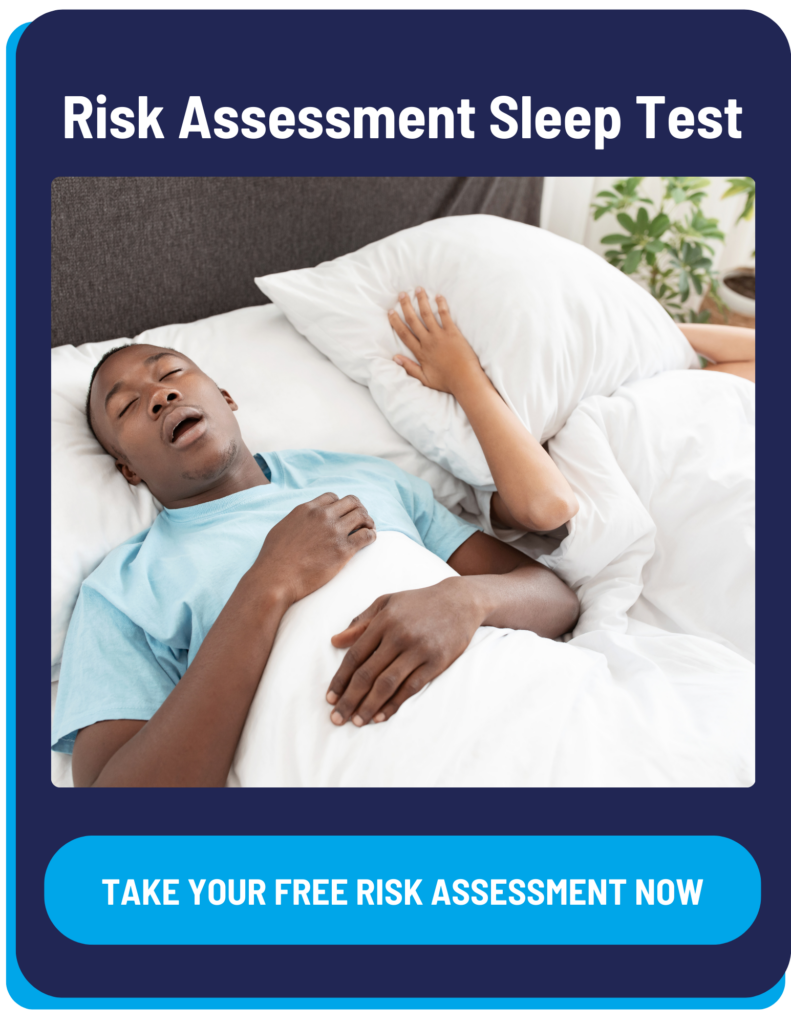Key Takeaways:
- Telemedicine is the use of electronic information and communications technologies to provide and support health care when distance separates the participants.
- Telemedicine practices, including follow-up appointments, can be highly beneficial for those who have sleep apnea.
- Sleep telemedicine services offer patients personalized one-on-one care through a live call, providing ongoing sleep apnea support, all without the patient leaving their home.
Over the last few years, telemedicine services have become one of the biggest innovations to the healthcare system. Commonly used for follow-up visits and treatment of chronic conditions, telemedicine provides a convenient approach to patient care. As a result of these benefits, sleep apnea treatment is changing. Patients no longer have to make frequent doctor visits in order to make adjustments to their care or to interpret their CPAP therapy results. Patients can receive consultations from their sleep specialist, and even get a home sleep test ordered, without leaving the comfort of their home.
What are Telemedicine Services for Sleep Apnea?
Sleep telemedicine services offer customized and individually designed programs to assist, motivate, and coach PAP therapy patients. Sleep specialists conduct personalized one-on-one care through live-call coaching and remote ongoing sleep apnea support. Patients are able to schedule these consultations at a time that is convenient and sign online from anywhere. That means no time off work, no nights in a sleep clinic, and no copays for multiple in-office visits.
How Does Telemedicine Improve the Quality of Care
The convenience of telemedicine allows a more robust patient outreach, which helps improve care overall. Patients and sleep doctors can engage through emails, calls, texts, and video chat on topics ranging from education and motivational reminders to support for healthy lifestyle changes.
Research into the effectiveness of telemedicine for sleep apnea shows patients appreciate the convenience. More than 95% of the interviewed patients in a telemed study were satisfied with the teleconsultation, and 66% of them answered that the teleconsultation could replace 50%-100% of their CPAP follow-up visits.
Telemedicine has been shown to improve CPAP compliance. With the ability to interpret sleep test data or request a prescription update without the need to visit the doctor’s office, more people are likely to begin or continue sleep therapy.
Benefits of Telemedicine for Patients and Providers
Telehealth benefits patients by saving time. Patients can receive a sleep apnea diagnosis through a home test, rather than spending time getting the same results at a sleep center. No need to make alternate care arrangements for children or pets or wait indefinitely until an appointment is available. Patients also cut back on doctor office visits and the copays that go with them. They are able to receive necessary information remotely using telemed communication. For sleep doctors, this means the opportunity to provide more focused care on patients.
Remote Monitoring and Management
The Role of Wearable Technology: Utilizing innovative devices for real-time data collection
Wearable technology makes monitoring sleep habits easy. The device can be worn comfortably without getting in the way. The best part is that it can collect all the real-time data without patient participation. They can pass on that sleep data to the doctor for a deeper analysis of their sleep apnea.
Empowering Patients: Encouraging self-management and compliance through remote monitoring
Many CPAP machines also include wireless sleep data collection which can help them self-manage their sleep data archiving. The technology helps them stay compliant without additional equipment.
Overcoming Challenges and Addressing Concerns
Security and Privacy: Safeguarding patient information in the digital era
Wireless services and telemed options can raise concerns about privacy. Helping patients understand that sleep data is transmitted privately to doctors and that online conversations are private can help build assurance.
Technological Literacy: Ensuring all patients can effectively navigate telemedicine platforms
Learning new technology can be difficult, especially for those getting older. Educating patients new to online communication can ensure they can gain confidence to use telemed when they need it to reach their doctor right away.

Sleep Telemedicine Benefits for Patients
Control of Infectious Illness
Doctors should use telehealth appointments to prescreen patients for probable infectious diseases to help prevent the spread of COVID-19, flu, and other infectious diseases. It also eliminates the need for sick people to visit the office. Everyone benefits from less exposure to other people’s germs, especially those who are chronically ill, pregnant, elderly, or immunocompromised.
Preventative Care
Telemedicine may make it easier for people to get the preventive care that will help them live healthier lives in the long run. This is particularly true for people with disabilities who face financial or geographic barriers to receiving quality care. Other groups, such as older adults, those who are physically isolated, and those who are incarcerated, may benefit from it as well.
Better Assessment
Some specialty practitioners may benefit from telemedicine because they can see you in your own home. Allergists, for example, may be able to spot triggers in your environment that cause allergies. Neurologists, physical therapists, and occupational therapists should evaluate your ability to navigate and care for yourself at home. Telemedicine may also be used for mental health evaluations and therapy.
Better Health
You can better manage your therapy, lifestyle, and any chronic conditions you may have if you can see your doctor as often as you need to without the hassles of going into the office.
Enhancing Sleep Therapy Adherence
CPAP compliance is necessary for patients to overcome sleep apnea symptoms. Online consultations can help maintain consistent use of CPAP machines, so patients can improve sleep and their overall health.
However, it can be difficult to stick to a CPAP routine, especially for those new to the treatment. A quick online chat can help with common issues.
- Masks can be uncomfortable: try different types of masks to find the right fit
- Pressurized air can be hard to breathe: use a CPAP machine with ramp features to help ease into pressurized air at bedtime
- CPAP machines can be noisy: find a low-decibel machine
- There can be side effects to therapy when starting: use a humidifier to help reduce symptoms of dry pressurized air.
Valuable Insights And Sleep Data
The Link Between Sleep and Health: Insights from Data Analysis
Sleep data can reveal a lot. For example, just a few nights of data analysis can uncover fluctuations in blood pressure, low oxygen flow to the brain, and periods of disruptive wakefulness due to sleep apnea.
Optimal Sleep Patterns: Finding Your Rhythm
With this sleep data patients can also determine ideal sleep patterns. When to go to bed and when to wake up to gain the most sleep can help with regular sleep. With this sleep data patients can achieve that deeper level of sleep necessary for full brain and body restoration.
Tracking Sleep Quality: Tips for Improving Your Zzzs
Sleep data helps doctors find what’s wrong with a patient’s sleep so they can make it right. It can help prescribe the ideal settings for your CPAP machine to prevent nightly apneas. Doctors can track the drop in apnea frequency and help patients develop a consistent sleep schedule that keeps them compliant.
Sleep Data and Mental Health: Unveiling Patterns and Triggers
Sleep data can also help find the connection between mental health and sleep health. More frequent sleep apneas can leave a patient irritable and moody in the morning, which can lead to changes in pressure settings as a solution. Regular patterns of lost sleep can help a patient and their doctor connect the dots to bouts of depression and anxiety.
Reduction of Healthcare System Strain
With telemedicine patients spend less time in a doctor’s office or emergency room. This efficiency helps take the burden off an already strained healthcare system.
Virtual consultations help patients more efficiently receive diagnosis and treatment. Telemed appointments happen sooner so treatment happens sooner.
Sleep Telemedicine Benefits for Healthcare Providers
Sleep Telemedicine Improves Provider Satisfaction
It can be difficult and stressful to work as a healthcare provider in today’s world. By making it easier to meet with patients, telemedicine can increase work satisfaction. Telemedicine allows providers to better balance their work and personal lives.
Reduced Overall Expenditure
Telemedicine services may result in lower overall expenditure for providers. They may, for an instance, be able to pay less for front desk assistance or invest in an office space with lesser rooms.
Does Medicare Cover Sleep Telemedicine?
In most instances, Medicare will cover a portion of the amount owed for telehealth visits. Usually, this amount is the same that is covered for in-person visits. Of course, we recommend talking to your doctor or health care provider directly to determine if they will cover certain telemedicine services.
Sleep Care Online does not partner with any insurance providers and is an out-of-pocket service.
How Does Telemedicine Work for Sleep Apnea?
For those wondering if they have the symptoms of sleep apnea, getting a proper diagnosis is the most important step. With Sleep Care Online, patients can schedule consultations with their doctor, receive a referral for a home sleep test and go over sleep study results anywhere. If diagnosed, Sleep Care online connects patients with a sleep expert to discuss customized equipment recommendations.
Start with a Risk-Free Assessment
Take this free 2-minute risk assessment questionnaire to see if you are at risk for sleep apnea. Have questions about getting started? Our customer care staff is available to call at 866.465.4478 or email at contact@sleepcareonline.com.
Home sleep apnea tests and telehealth services are now available nationwide.




